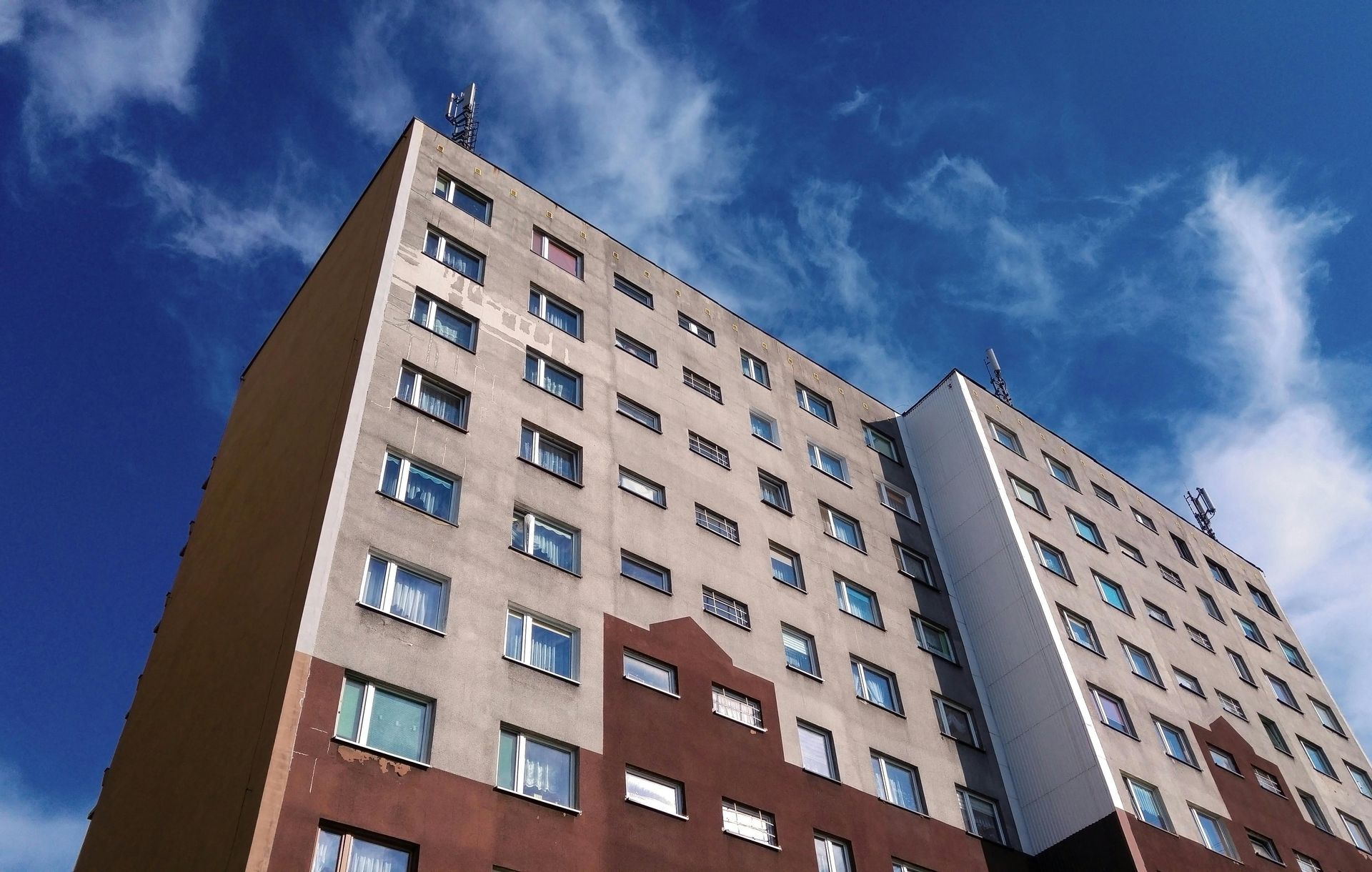Commercial Property Management: Strategies for Success in 2025
Commercial Real Estate Property Management in 2025
Effective property management is key to maximizing the value and performance of commercial properties. Commercial real estate property management involves overseeing various aspects such as leasing, maintenance, and tenant relations to ensure that your investment runs smoothly and profitably. Understanding these responsibilities can help you make informed decisions about your assets and enhance your return on investment.
As a property owner or investor, collaborating with skilled property managers can greatly impact your success. They navigate complicated lease structures, handle financial details, and maintain strong tenant relationships. This expertise not only simplifies the management process for you but also helps to attract and retain quality tenants.
Whether you own office buildings, retail spaces, or industrial complexes, having a solid grasp of commercial property management practices can lead to better operational efficiency and increased revenue. By focusing on professional management strategies, you can create a more enjoyable environment for tenants while protecting and enhancing the value of your properties.
Principles of Commercial Property Management
Effective commercial property management hinges on key principles that ensure success and sustainability. Understanding how to manage assets, maintain proactive communication, and implement risk management strategies will significantly impact your investment returns.
Asset and Portfolio Management
In commercial property management, asset and portfolio management focuses on maximizing the value of your real estate investments. You should assess the performance of each asset within your portfolio regularly. This involves tracking occupancy rates, rental income, and operational costs.
Utilizing techniques like financial modeling and risk assessments can help you make informed decisions. Prioritize properties that align with these standards, as they often yield higher return on investment (ROI).
Proactive and Empathetic Communication
In commercial property management, communication is a key element. Building strong relationships with tenants leads to increased satisfaction and retention. You should maintain proactive and empathetic communication to address tenant concerns swiftly.
This could involve regular check-ins or surveys to gain feedback. Using an open-door policy creates trust and encourages tenants to share their needs. Good communication also helps in marketing properties effectively and managing lease negotiations.
Utilizing technology for communication, such as apps or online portals, can streamline processes and keep everyone informed. Clear communication can enhance rapport and improve the overall experience for all parties involved.
Proactive Maintenance & Risk Management Strategies
Proactive maintenance is essential to preserving the value of your commercial properties. You should implement regular inspections and maintenance schedules to address issues before they escalate. This will help in reducing costs in the long run.
A strong risk management strategy helps identify potential problems early. Conduct regular assessments focusing on environmental risks and compliance with local regulations.
Additionally, you can develop a detailed response plan for emergencies. This not only protects your assets but also reassures tenants, making your properties more attractive. Prioritizing maintenance and risk management can lead to increased tenant satisfaction and better long-term returns.
Operational Excellence in Property Management
Achieving operational excellence in property management involves several key areas, including effective leasing strategies, sound financial practices, and robust maintenance supported by technology. These components play a crucial role in ensuring tenant satisfaction and enhancing property value.
Leasing and Tenant Relations
Effective leasing practices are essential for maintaining high occupancy rates in your properties. You should focus on clear communication and transparency with potential tenants during the leasing process. Providing detailed property information and answering inquiries promptly builds trust.
Tenant relations are equally important. Strong relationships lead to higher tenant retention rates, reducing turnover costs. Regularly checking in with tenants and gathering feedback enhances tenant satisfaction. Consider implementing systems for managing lease renewals and addressing tenant concerns quickly to foster a positive living or working environment.
Financial Planning and Reporting
Robust financial planning is vital for managing your commercial real estate effectively. Creating accurate budgets helps track expenses and ensures financial stability. Regular financial reporting on key metrics aids in understanding your property’s fiscal health.
You must also focus on optimizing operational costs. Analyze your accounting practices to identify areas for savings without compromising quality. Transparent financial communication with property owners and stakeholders builds confidence and supports informed decision-making regarding property investments.
Maintenance and Technology Solutions
Property maintenance is key to upholding the standard of your real estate. Regular inspections and a clear maintenance schedule prevent costly repairs and enhance tenant satisfaction. Prioritize responsive customer service to address tenant issues promptly.
Incorporating technology solutions can streamline day-to-day operations. Utilize property management software to track maintenance requests, automate workflows, and manage communications efficiently. These tools facilitate data-driven decisions, enhance operational efficiency, and improve your overall property management experience. By leveraging these technologies, you can ensure a higher level of service while maintaining your property's value.
Lifecycle of Commercial Real Estate Management
In managing commercial real estate, understanding the lifecycle is crucial. Key stages involve meticulous planning, execution, and transition to optimize property value.
Acquisition and Due Diligence
The acquisition phase is the starting point of property management. You need to identify potential properties that align with your investment strategy. Factors such as location, market trends, and property condition should be considered.
Perform thorough due diligence before finalizing any purchase. This includes hiring real estate services to inspect the property and evaluate financial records. Assessing zoning regulations, environmental issues, and any potential liabilities is key.
Mistakes made during this phase can lead to significant financial loss. Ensure you have a solid plan in place to secure the best properties for your portfolio.
Development, Construction, and Lease Administration
After acquisition, you may need to develop or renovate the property. This involves coordinating construction activities, managing budgets, and setting timelines. Effective communication with contractors and stakeholders is vital for staying on schedule.
Lease administration also plays a critical role here. You should implement policies that cover tenant relationships, rent collection, and lease renewals. Keeping clear, organized records is essential.
Additionally, monitor market conditions to set competitive lease rates. Providing excellent property management solutions can lead to higher tenant satisfaction and retention.
Disposition and Transition
At some point, you might decide to sell or transition the property. The disposition phase involves preparing the property for sale by enhancing its appeal. This could involve renovations or strategic marketing.
You should also conduct an exit strategy analysis. Knowing when to sell can maximize your return on investment. Consider current market conditions and the property’s performance as part of this analysis.
Make the transition smooth for both the new owner and existing tenants. Clear communication and a well-prepared handover can maintain your reputation and influence future investments.
Leveraging Professional Real Estate Services
Using professional real estate services can significantly improve how you manage commercial properties. By employing experts in property management and real estate brokerage, you not only enhance the value of your assets but also streamline operations.
Commercial Property Management Companies
When you choose a commercial property management company, you gain access to a range of specialized services. These companies handle daily operations such as tenant relations, maintenance, and lease negotiations. They also focus on attention to detail, ensuring that properties remain in top condition.
These firms often provide accounting services that include rent collection and expense tracking. This helps you maintain accurate financial records and optimize cash flow. They can also assist you with project management and building engineering tasks to ensure compliance with regulations and safety standards.
By working with a dedicated management team, you can save time and reduce stress while maximizing property value.
More about Coastline Equity
Property Management Services
 Learn More
Learn MoreOur team will handle all your property needs, offering specialized services such as in-depth inspections, liability management, staff recruitment and training, and round-the-clock maintenance—expert support tailored to the unique requirements of your real estate assets.
About Us
 Learn More
Learn MoreOur dedicated team transforms property management challenges into opportunities. From tenant management to streamlined rent collection and proactive maintenance.
Property Management Excellence
 Learn More
Learn MoreAs a contributing author for Forbes, Anthony A. Luna brings a wealth of expertise and knowledge in the property management industry, real estate sector, and entrepreneurship, providing insights and thought-provoking analysis on a range of topics including property management, industry innovation, and leadership.
Anthony has established himself as a leading voice in the business community. Through his contributions to Forbes, Anthony is set to publish his first book, "Property Management Excellence" in April 2025 with Forbes Books.
Insights
 Learn More
Learn MoreLearn more about Coastline Equity's property management practices & processes and how we support our clients with education and a growth mindset.
Coastline Equity Property Management is your partner as you continue to learn and grow.
News & Updates
Property Management Made Easy
Los Angeles
1411 W. 190th St.,
Suite 225
Los Angeles, CA 90248
Temecula
41743 Enterprise Circle N.,
Suite 207
Temecula, CA 92590
P.O. BOX #1489
TORRANCE, CA 90505






